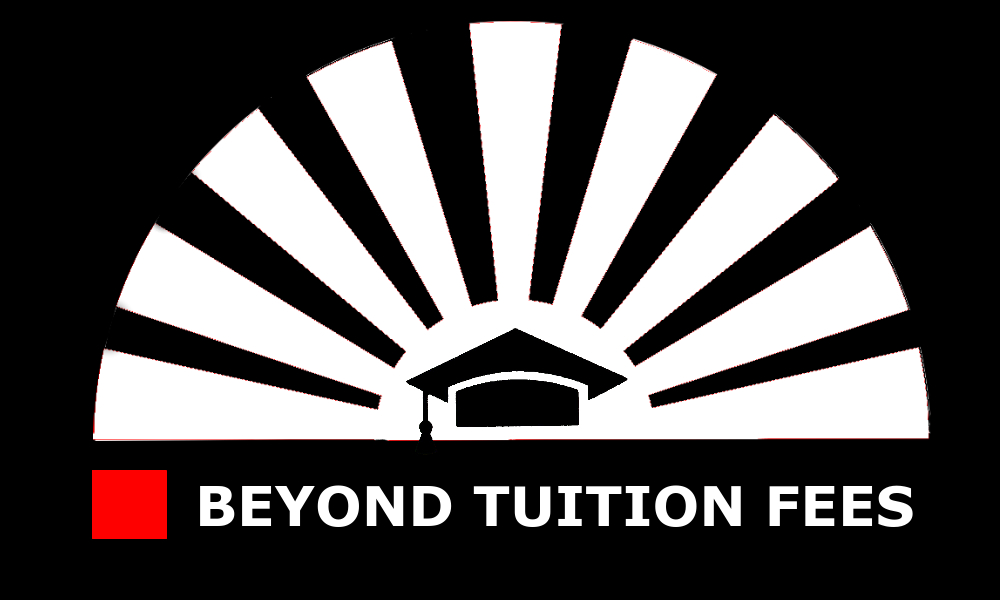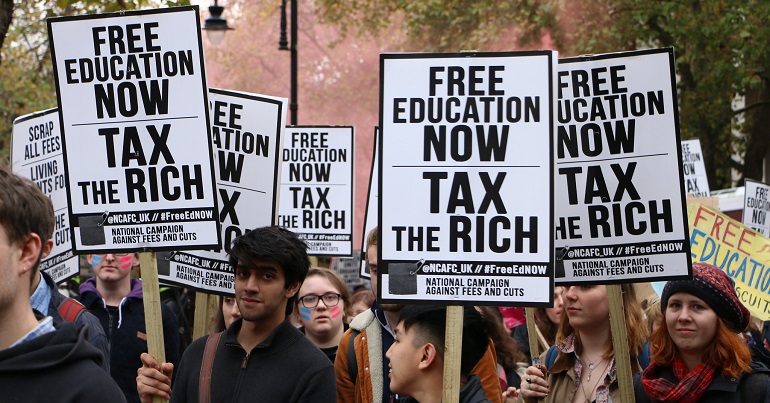Education as Emancipation – Beyond Tuition Fees #7

It is a time of extraordinary potential for change in UK Higher Education. Labour’s promise to end tuition fees has defied the critics and united many behind Corbyn’s political project. But what will the implications for universities be if this comes to pass? And what can we do to leverage this progress? In this series, the Norwich Radical and Bright Green are bringing together perspectives from across the sector to explore these questions.
The traditional arguments for ‘free education’ focus on reducing the upfront price of university courses to zero. Rather than HE being a commodity to be traded on the open market, it becomes a good paid for by the government. This kind of argument rests on a contradiction: we cannot solve the commodification of HE by continuing to assert the existence of HE as commodity, even a nationalised one. Abolishing tuition fees is undoubtedly a good thing, but to move beyond their legacy we must understand HE as devoid not only of its price but also its status as a commodity. We need to explore the potential for HE grounded not in classification or institution but in the fundamental equality of intelligences: HE without the degree.
First, we need to look at what abolishing tuition fees would mean for the sector. Much depends on the specific nature of the policies adopted, but we can make some assumptions. Structurally it would mean a return to a HEFCE-like regulator and the closure of the deeply flawed Office for Students. When the government funds HE, the state can pull funding levers to move universities in directions of its choosing. If we return to the pre-fees model of the ‘90s, students, their “satisfaction” and their “experience” would remain an important marker of success, but they would no longer be the way in which universities perpetuate their own existence. In terms of research, it isn’t clear that stopping tuition fees would lead to reform of UKRI. It is easy to imagine a system in which teaching is government-backed but knowledge production is still marketised. In short, until we know the exact material and legal ramifications of Labour’s plans to scrap fees and how they intend to fund HE going forward, we can’t know how the system will look. What is clear is that HE will continue to serve the needs of the economy.
A friend of mine once referred to my university (and its VC) as a kind of ouroboric wyrm that eats students to produce buildings, and other markers of its own success and grandeur. With the abolition of tuition fees, the serpent disgorges its tail – it no longer uses students as fuel to reproduce itself. But it still eats students.
Historically the purpose of HE has been twofold: the production of certain workers for the economy and the definition of cultural capital. The university digests students into professionals who can provide certain functions for our economy. HE produces the professional classes and the conditions which make the professional classes sensible. Thus, the funding of universities is directly related to the economy’s need for certain kinds of educated workers. This is not a link forged by the existence of tuition fees but something that is baked into HE under a capitalist mode of production. Removing fees will not by itself change our current understanding of HE as a method of producing valuable commodities for the economy. We need to be thinking about more than just how to get rid of fees – we need to think about how we kill the snake.
Once we understand HE as a process that produces value through having university staff labour on students, like smiths forging the tools of society, the contradiction in conflating free education with education that has no price becomes clear. Making education ‘free’ by having the government, as opposed to students, pay for it is not the same as reshaping HE in a mode that is not a commodity. Truly free education is about emancipation from prevailing economic structures and modes of thought. In order for HE to be truly free its linkage to the economy must be severed. It isn’t enough that we allow everyone to become a member of the professional classes – rather we must break the relationship between HE and the economy.
This means advocating for a mode of HE that is political. If we are to establish truly free education we need to build a system that is not grounded in classification or the production of subjects destined for management. Rather, we need an education that is grounded in the fundamental equality of intelligences. The foundation of education must be the ability of humans to interact intellectually and trust in the contributions that they can make to each others’ understanding. Education must be dissenting, challenging the assumptions not only of the economy but also those of society and of pedagogy itself. This means a mode of HE designed not on the basis of discerning between 2:2s and 2:1s or the production of subjects to meet the demands of the labour market. Free education means HE that is not about granting economic value to the student but about their emancipation as thinking and speaking beings.
The question then is, what would this ‘truly free’ HE look like? It would be designed for workers as much as students. It would necessitate an opening of the university to more participants than just its clients. It would invert how we understand academia as a “pathway” for students. In preparing for the coming abolition of fees, we should be seriously considering advocating for the abolition of degrees, which are markers of a successfully completed process of value-creation, not education. I worry that if we don’t consider the political possibilities for HE beyond its status as a commodity then we can only (re)produce it as a new kind of commodity.
There is a double movement in calls for the end of fees that we must remain aware of. To successfully reduce the price of HE to zero also crystallises our understanding of HE as having a price. We must be wary of the fact that if we continue to use the language, practices and terms of marketisation, we cannot produce a mode of HE that is truly radical or emancipatory.
If you’d be interested in contributing to this article series, contact either thenorwichradical@gmail.com or front-desk@project1-hvznj9e2s8.live-website.com with an article pitch.




Living the argument, Michael! I am just about to write an article about how ‘inclusion’ of disadvantaged groups – like Roma – relies on education. I’m arguing that education in the instrumental sense you talk about – when linked to the economy – will never result in inclusion and will simply reporoduce the racist status quo. I’m saying we need another category. I talk about Bildung as in the concept put forward by hermeneutics – see eg writings by Nicholas Davey. This is much wider and is to do with openness and noticing others and focused on liberation.